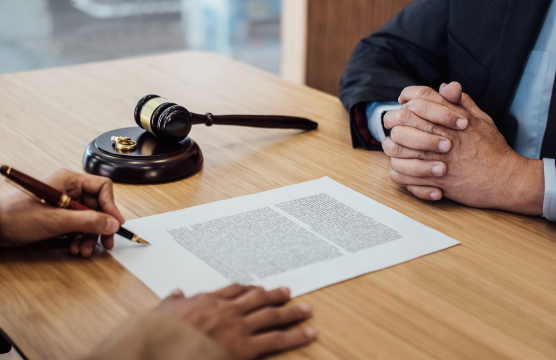
Dealing with Salaries, Contracts and Professional Income in Divorce Settlements
The question of how to deal with future income and earnings in divorce settlements for professionals is not always a straightforward one. As salaries, wages
When going through a divorce, there are many financial decisions that will need to be taken. One of the larger decisions is how to deal with any pensions in the marriage. There is no set formula for this, although a common point of agreement is a 50:50 split. This can, however, be altered to ensure that both parties receive a fair allocation of the pension to help fund their ongoing responsibilities and expenses.
The law differs slightly between what is the case in England and Wales and how pension valued are dealt with in Scotland. In the former, the total value of any pensions that have been built up during AND before the marriage are taken into account (apart from the basic state pension). In Scotland, it is ONLY the value of pensions built up during the marriage that is calculated. Anything the is accrued after the date of separation, or before the marriage or civil partnership doesn’t count.
For more information, please get in touch with us by using info@shortlands.co.uk or call us 02076299905 or book an initial online consultation.
Shortlands is a boutique family law firm with over 20 years of experience in dealing with the trials and tribulations of a divorce and all family law matters. As a result, we have become the first choice of family law specialists in London.
A pension can be divided in a number of different ways, depending on the desired outcome and individual circumstances. The value of the pension can be offset against other assets from the marriage. In this scenario, the pension holder keeps the whole of their pension and their partner keeps a larger share of other assets. This is only possible to do if there are sufficient assets outside of the pension’s value to secure a fair agreement.
Alternatively, an attachment order can be put in place. This allows the partner who does not have the pension to benefit from lump sum payments from it in the future. It can also apply to any death benefit payments made after the pension holder passes away. One downside to this is that you will have to wait until your ex-partner retires before you can receive the payments. Finally, there is the option of pension sharing, or splitting the assets at the time of divorce. A share of the pension benefits are paid into the non-holder’s name, which offers a ‘clean break’. Each partner will pay tax on their own allocation at their own tax rate.
Basic state pension is not eligible to be allocated in the ways described above. However, if the court issues a state pension sharing order, this means that you may have to share any extended state pension entitlements that you may have built up. A family solicitor or financial expert can help to further explain the issues around state pensions and divorce. The amount of state pension either partner receives will also be reliant on their previous NI contributions.
Our professional and highly experienced team of family lawyers can assist you in your legal matters with full respect, ensuring you maintain a private family life. For more extensive advice and information, please email info@shortlands.co.uk or call us 02076299905 or book an initial online consultation.

Apart from the state pension, pensions are considered to be part of the overall pot of marital assets and will be divided by the courts if the parting couple cannot reach agreement by themselves. One option to retain a pension in its entirety is offsetting, where the other partner receives a larger share of other assets in return for the pension holder retaining all of their pension.
It is always preferable for a divorcing couple to reach a mutual agreement regarding the division of any assets, including pensions. If this is not possible, the courts will make the final decision, which will be legally binding.
This depends entirely on how the pension is divided up, and the terms and conditions of the pension provider. It is advisable to seek professional advice on this potentially complex issue. This ensures that both parties know what to expect and how death or remarriage will affect pension arrangements after a divorce.
Shortlands Solicitors has financial experts standing by, ready to help guide you through this important aspect of your divorce. They will explain what you need to do and help you decide what the best option is for you and any dependents involved in the marriage or civil partnership.

The question of how to deal with future income and earnings in divorce settlements for professionals is not always a straightforward one. As salaries, wages

When a marriage or civil partnership breaks down, one important aspect that will need resolving is how to divide monetary and other assets. This allows

A divorce or breakdown of a relationship where children are involved will seriously affect how a family is set up. This is especially true if





Please fill the form below to arrange your fixed cost initial appointment.
Please fill the form below to request a free call back: